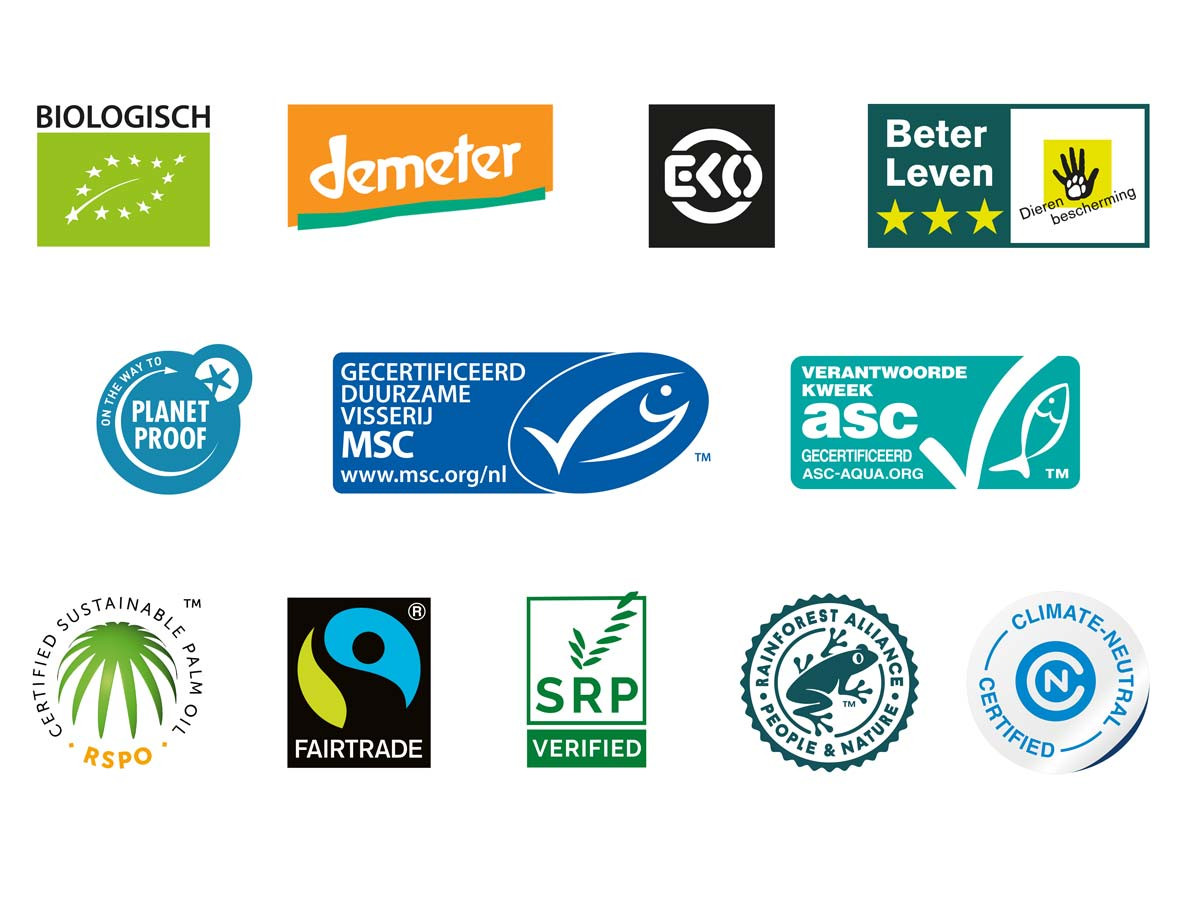
Sustainability certifications play a crucial role in the food industry. These certifications set specific requirements for environmental impact, animal welfare, and social labor conditions, providing guidelines not only for consumers but also for food producers aiming to make their production processes more sustainable. With around 300 certifications and corporate logos available, it's important for producers to identify which certifications are truly reliable and impactful. Milieu Centraal has developed the Keurmerkenwijzer tool to clarify the value and reliability of various certifications, focusing on food products but also relevant to other categories.
In 2022, Milieu Centraal re-evaluated all food certifications with sustainability claims, resulting in the identification of 12 top certifications that stand out for their stringent requirements, reliable audits, and transparent information. For food industry producers, these leading certifications are strategically important. They not only serve as proof of sustainable production but can also enhance brand value and build trust among both consumers and business partners. Adopting these certifications can act as a benchmark to elevate internal sustainability standards and differentiate in an increasingly competitive market.
A reputable certification is characterized by criteria that exceed the legal minimum, often requiring producers to invest in sustainable technologies and processes. The independent auditing and transparency associated with these certifications enhance their credibility, which is essential as sustainability becomes an increasingly decisive factor in the choices made by buyers and partners across the supply chain.
A critical consideration for food producers is the pricing of sustainable products. Sustainability certifications often involve higher production costs due to greater attention to environmental and social factors. However, these higher costs can be justified through the concept of true price, which includes the full costs of production, accounting for societal impacts such as environmental damage and low wages. For producers, certified products are often better positioned to reflect this true price, which can be a key argument in discussions with buyers about pricing and value.
Sustainability certifications also have a significant influence on the market strategy of food producers. They serve as a catalyst for continuous improvement and innovation, helping to strengthen competitive positions. Additionally, certifications can set a benchmark for other producers in the sector, encouraging them to improve their own sustainability practices.
For producers, following top certifications not only helps meet the expectations of conscious consumers but also allows them to anticipate future regulations and market demands. Even if a product doesn’t carry a certification, it’s important to consider the sustainability strategies in place. Certifications, however, simplify the process of communicating and verifying sustainability efforts, ultimately contributing to a stronger market position and sustainable growth.
Source: ©Milieucentraal